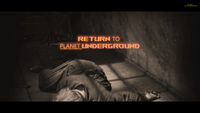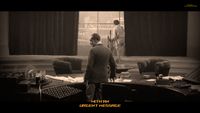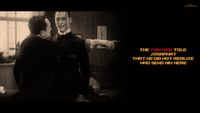Metropolis is legendary groundbreaking masterpiece from Fritz Lang, which was made in the Weimarre era as a silent movie. It is seen as corner stone of cinema and the mother of all sci fi movies. The original premiere in Berlin in 1927 and incorporated theme like, corporate greed, political corruption and social in equality. Semoha Homes takes Metropolis where is has not been before by re-designed the movie to a shorter and more modern version, replacing the original classical music with custom electronic music, also adding different sound layers, re-editing the movie to minimize the old damaged footage and replacing the long strings of text that were used in the orginal silent movie by a voice-over taking the audience more into the must see classic by pioneer Fritz Lang. This classic historic masterpiece is remade so younger generations will not forget this beautiful movie. A must see classic!!!
More info will follow where this new version can be seen, please check out the new trailer below
Metropolis is a 1927 German expressionist science-fiction silent film directed by Fritz Lang and written by Thea von Harbou in collaboration with Lang from von Harbou's 1925 novel of the same name (which was intentionally written as a treatment). It stars Gustav Fröhlich, Alfred Abel, Rudolf Klein-Rogge, and Brigitte Helm. Erich Pommer produced it in the Babelsberg Studio for Universum Film A.G. (UFA). Metropolis is regarded as a pioneering science-fiction film, being among the first feature-length ones of that genre. Filming took place over 17 months in 1925–26 at a cost of more than five million Reichsmarks, or the equivalent of about €21 million.
Made in Germany during the Weimar period, Metropolis is set in a futuristic urban dystopia and follows the attempts of Freder, the wealthy son of the city master, and Maria, a saintly figure to the workers, to overcome the vast gulf separating the classes in their city and bring the workers together with Joh Fredersen, the city master. The film's message is encompassed in the final inter-title: "The Mediator Between the Head and the Hands Must Be the Heart".
Metropolis met a mixed reception upon release. Critics found it visually beautiful and powerful – the film's art direction by Otto Hunte, Erich Kettelhut, and Karl Vollbrecht draws influence from opera, Bauhaus, Cubist, and Futurist design, along with touches of the Gothic in the scenes in the catacombs, the cathedral and Rotwang's house – and lauded its complex special effects, but accused its story of being naïve. H. G. Wells described the film as "silly", and The Encyclopedia of Science Fiction calls the story "trite" and its politics "ludicrously simplistic". Its alleged communist message was also criticized.
The film's long running time also came in for criticism. It was cut substantially after its German premiere. Many attempts have been made since the 1970s to restore the film. In 1984, Italian music producer Giorgio Moroder released a truncated version with a soundtrack by rock artists including Freddie Mercury, Loverboy, and Adam Ant. In 2001, a new reconstruction of Metropolis was shown at the Berlin Film Festival. In 2008, a damaged print of Lang's original cut of the film was found in a museum in Argentina. Footage from both this print and a second one archived in New Zealand was restored and re-integrated into the film, bringing it to within five minutes of its original running time. This version was shown on large screens in Berlin and Frankfurt simultaneously on 12 February 2010.
Metropolis is now widely regarded as one of the greatest and most influential films ever made, ranking 67th in Sight and Sound's 2022 critics' poll, and receiving general critical acclaim In 2001, the film was inscribed on UNESCO's Memory of the World Register, the first film thus distinguished. On 1 January 2023, the film's American reserved copyright expired, thereby entering the film into the public domain.
Synopsis - Metropolis
In a futuristic city sharply divided between the working class and the city planners, the son of the city's mastermind falls in love with a working-class prophet who predicts the coming of a savior to mediate their differences.
Sometime in the future, the city of Metropolis is home to a Utopian society where its wealthy residents live a carefree life. One of those is Freder Fredersen. One day, he spots a beautiful woman with a group of children, she and the children quickly disappear. Trying to follow her, he is horrified to find an underground world of workers who apparently run the machinery that keeps the Utopian world above ground functioning. One of the few people above ground who knows about the world below is Freder's father, John Fredersen, who is the founder and master of Metropolis. Freder learns that the woman is called Maria, who espouses the need to join the "hands" - the workers - to the "head" - those in power above - by a mediator who will act as the "heart". Freder wants to help the plight of the workers in their struggle for a better life. But when John learns of what Maria is advocating and that Freder has joined their cause, with the assistance of an old colleague. an inventor called Rotwang, who turns out to be But their nemesis goes to works towards quashing a proposed uprising, with Maria at the centre of their plan. John, unaware that Rotwang has his own agenda., makes plans that include shutting down the machines, with the prospect of unleashing total anarchy both above and below ground.
MARIA
The individual activist Maria has more than one face and is an important driver of the epic story that is being told in Metropolis.
ROTWANG
The lhird and last chapter of Metropolis called Furioza, where all key player come together for the final plot to unfold.
FREDER
The son of the master of Metropolis who does not understand the seperation of class and takes his own road towards this social structure
THE THIN MAN
The Thin Man visiting Josaphat, at his apartement where he finds a trail of the uprising shift within the workers comunnity.



